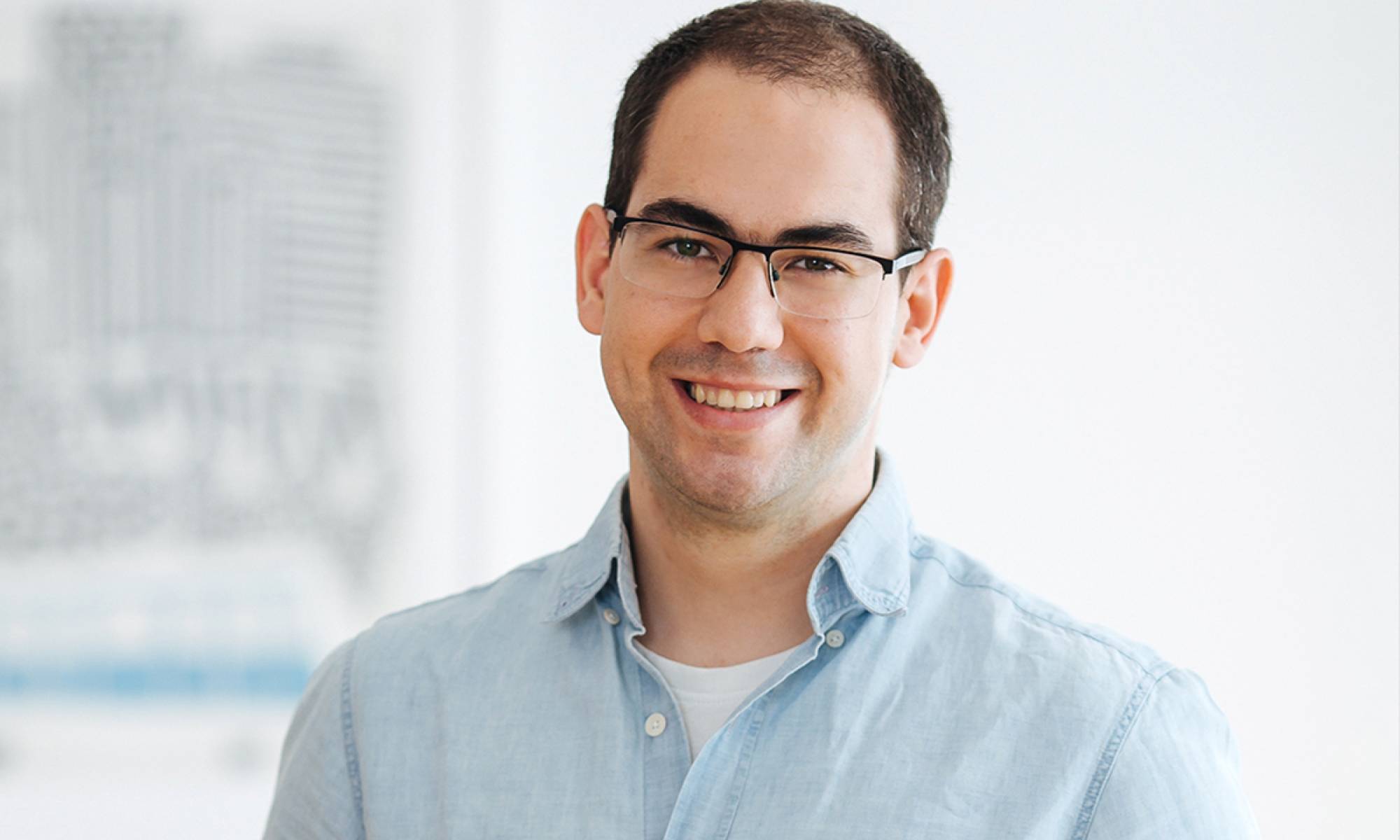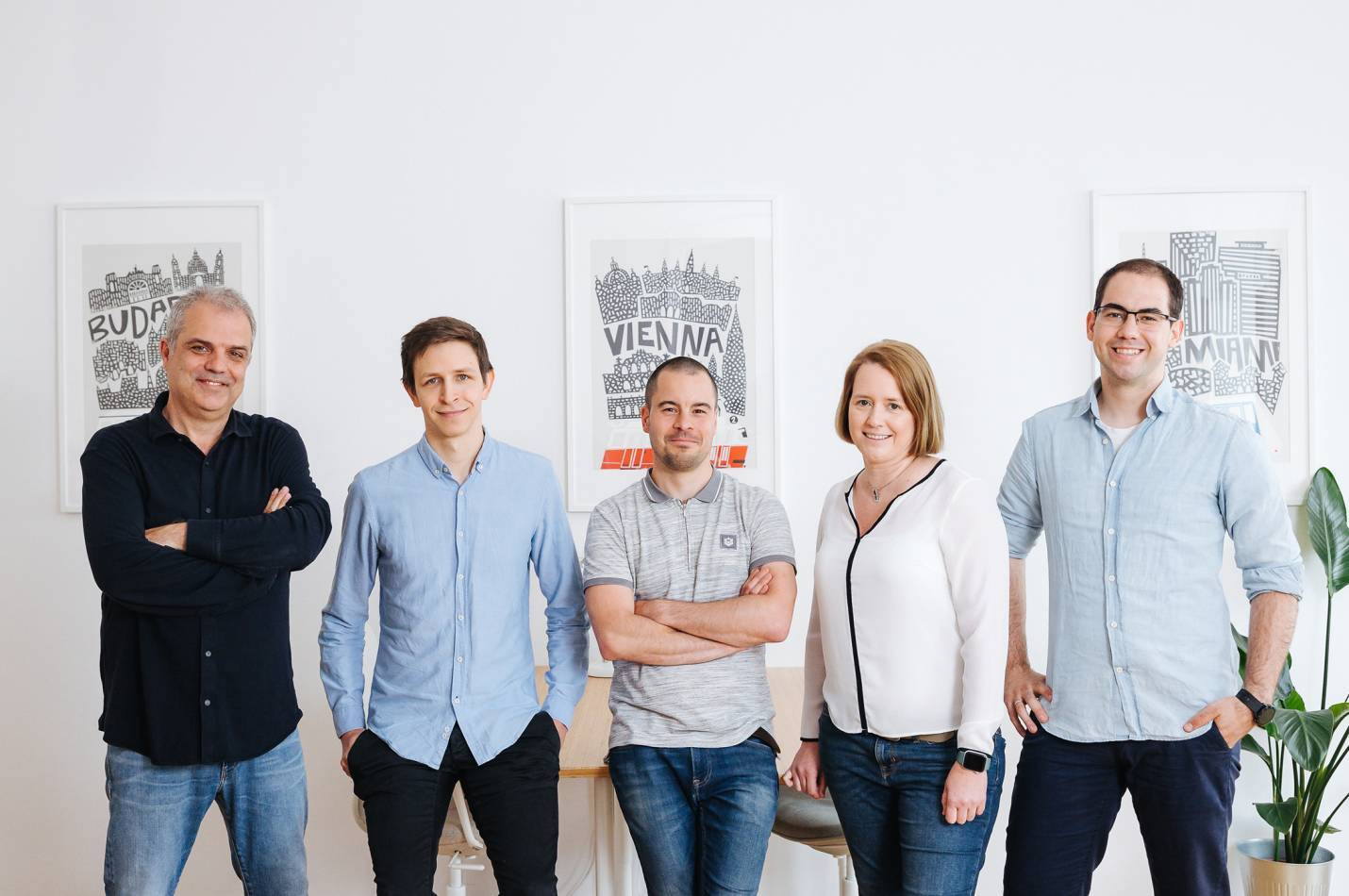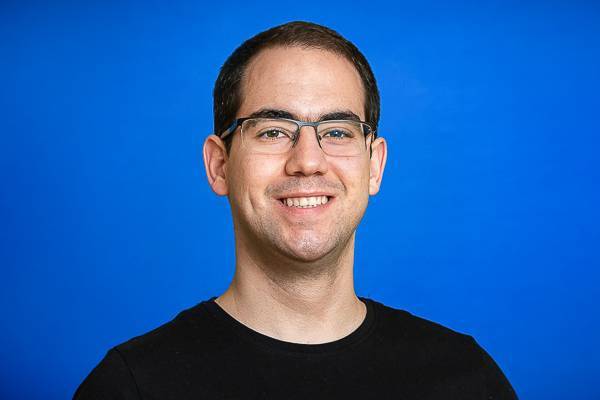Meet Andras Barta, Head of Medical at XUND
XUND’s medical team oversees the medical database, which is at the heart of our AI solution and key to its performance and safety. We talked to the Head of Medical, Andras Barta, about his daily routine, how his team ensures the high quality of our products, and how he expects AI to change the future of healthcare.

What does a typical day as Head of Medical at XUND look like?
Andras: It’s difficult to describe my daily routine since each day is so diverse, and as a team leader, many unexpected things can happen. Managing priorities between important tasks is a constant challenge when other, sometimes more urgent, issues arise. Also, one unique aspect of the medical team is that we spend a large portion of our days debating and discussing in order to reach a consensus. In addition, we do constant peer reviews to ensure we don’t make any decisions that aren’t professionally sound. My role is to conduct these meetings and make sure that every team member is up to speed and that they have the resources that they need.
We usually start each morning with a team check-in to discuss current tasks, difficulties we encounter, and share expertise on pressing issues. Apart from coordinating daily activities and supporting my team with peer reviews, my other main role is establishing strategic planning and collaboration with the other teams. We work closely with the data science team and developers, but we also have quite intensive collaborations with the other teams.
How did you end up at XUND?
Andras: I have worked in an emergency room and done research in the field of internal medicine, and I am currently working on my Ph.D. with a focus on congenital metabolic diseases. When a very good friend of mine came to me with the opportunity to work at XUND, it was such great timing and such a great opportunity that I couldn’t pass it up. I was intrigued by working in a revolutionary field where I could have an impact on thousands, if not tens of thousands, of patients.
“But what really caught me was that XUND has this very strong vision, which is shared among all three founders, to help patients and ensure the absolute best health outcomes for each of them.”
And this has always been my goal from the beginning. So even though this might not be the most conventional path, I am still able to work towards this goal. I also genuinely believe digital health and digital medicine will become their own specialized disciplines.
How did your role change throughout the years, and what have been the biggest challenges at your job so far?
Andras: I have always enjoyed working at XUND, even though my role has turned a complete 180 degrees since I started. When I first came here, I was thoroughly impressed by the free-flowing atmosphere and start-up vibe. Also, the team structure was very different, and my primary responsibility was to develop the medical database and work mostly with other doctors. My biggest change has been moving from an active database development role to a coordinator role. It requires a very different skill set, but one that I thoroughly enjoy learning.
What has always characterized our team is that everyone is extremely dedicated and has an innovative approach to constantly improving the system and making more detailed and precise decisions. We now have a medical team of seven doctors, and while we had to streamline tasks and structure our workflows due to our growth, it poses a challenge to keep the start-up mentality. But, so far, I believe we are on the right track to continue having a supportive atmosphere and an openness to innovation, just as we had at the very beginning.
Tell me more about an exciting project you’ve worked on that has had the most significant impact on XUND.
Andras: Currently, XUND’s primary products are the Medical API and White Label solution which can be used to integrate and access the Symptom Check and the Illness Check modules. As a young company founded in 2018, we have made significant progress in a very short time, especially in the past year and a half, where we were able to double the coverage to nearly 600 diseases that are live in the medical database. And all without sacrificing any accuracy. In fact, given our clinical validation, we have even managed to improve it.
Let me expand on this. Our primary clinical validation is based on real-life case studies, and we strive to maintain high quality in both sensitivity and specificity. The first aspect defines the ability to accurately identify the underlying causes of symptoms, and the latter focuses on reducing the number of false results given to patients.
Doctors are always subject to things such as fatigue and different levels of training. Furthermore, patients may misinterpret the information provided due to low health literacy, or become overwhelmed with an overabundance of data which can lead to poor decisions. XUND’s API is capable of both consistency and thoroughness for each and every patient. All while filtering out unnecessary results to provide patients with the most straightforward, easily digestible information possible.
I would also further clarify that we currently consider both the Symptom Check and the Illness Check to be “pre-diagnostic” tools. Both are meant as an aid for patients to make better, more accurate decisions, efficiently seek care and hopefully make better-informed decisions. What we strive for is a seamless integration of the XUND API into the doctor-patient relationship to provide a higher level of care and efficiency.
Can you provide a brief overview of the medical team’s work and how you collaborate with other teams to improve medical accuracy?
Andras: XUND’s AI solution DISCO (DIsease Symptom Correlation Obtainment) is based on a Natural Language Processing (NLP) model and can read and interpret millions of medical publications. It is able to analyze disease associations and sort them by relevance using statistical methods. The medical team’s responsibility is to decide which new diseases are entered into the medical database. We use DISCO to identify connections between symptoms and diseases. As all the solutions proposed by artificial intelligence go through a medical review, the doctors in our medical team make the final decision.
There are quite a lot of checkpoints along the process, starting with the DISCO proposal, the evidence-based checkpoint, the peer review, and the case report review. Then there is the clinical validation. We invest a lot of energy in preparing clinical trials that involve a large number of patients using the XUND API and can confirm that it can indeed be a valuable tool in patients’ daily lives.

The medical team works closely with both the development team and the data science team. The data science team is responsible for machine learning and artificial intelligence, while the development team focuses on creating a user-friendly interface that incorporates our medical expertise. DISCO is constantly being improved to provide more detailed information and to assist with more tasks. It is key to the company’s vision to improve the quality and accessibility of healthcare. The goal is to create a scalable system that can be used to provide better outcomes for patients.
What are the advantages of medical AI, and do you believe that medical AI can eventually replace in-person visits to a doctor?
Andras: The advantages of artificial intelligence (AI) in healthcare are numerous. Diagnostics, data structuring, personalized therapy, and resource management, just to name a few. By analyzing enormous amounts of data, AI can provide doctors and patients with new insights that were previously beyond reach. It can find connections between different risk factors and diseases that current methods cannot and do so in a consistently high-quality manner that would have been previously unattainable. That being said, the goal can not and should never be to replace personal doctor-patient meetings.
There is currently a worldwide shortage of healthcare personnel, especially doctors and nurses. This exacerbates the issue of patients not receiving proper medical attention due to patients not seeing the appropriate doctor, or that they see the doctor too early or too late in the process. AI can help address these issues by ensuring that patients receive the right care at the right time and from the right provider. This reduces the risk of complications and improves long-term outcomes, which is the ultimate goal we are working towards at XUND.
What misconceptions about AI in healthcare have you encountered, and how can we work to address these misconceptions?
Andras: There are concerns among healthcare workers that AI may take away their jobs. However, this mindset is misguided. First of all, the primary objective of healthcare professionals should always be to improve patient outcomes, thus, any innovation that helps patients get better should be encouraged. Secondly, as I previously mentioned, there is a significant shortage of healthcare workers, therefore, I don’t see an immediate threat to their job security from the implementation of AI. However, we can expect that doctors and nurses who are not prepared to use these new technologies may be at a disadvantage and may not be able to provide the same level of care to patients as opposed to those who do.
As digital health professionals, it’s our responsibility to share a new perspective on the advantages of incorporating AI as a tool. But, naturally, we also need to be mindful of the potential dangers. Every innovation can carry risks, and we must critically examine them. Therefore, we should ensure that any new procedure is adequately validated and serves the patient's best interests.
XUND works on a variety of different research projects, including testing the accuracy and impact of the XUND API in clinical settings. In your opinion, based on some of the early results you’ve seen, what significant breakthrough do you possibly foresee happening in the next 5 years?
Andras: I think the biggest breakthroughs will be in preventative care. We are involved in several research projects to develop predictive models and improve healthcare beyond just diagnosing and treating manifested diseases. Right now, the industry as a whole primarily focuses on diagnosing and treating manifested diseases.
“To me, the future of healthcare is treating and preventing disease before it manifests.”
Of course, we cannot always prevent disease, but we can help patients mitigate future health-related risks, and we can aid patients as adverse changes to their health occur. With the rise in chronic and preventable diseases, helping people make better health decisions earlier in the process can greatly improve their quality of life and greatly improve their treatment options down the road.
I strongly believe that with the combined efforts of our data scientists and doctors, we will be able to make great strides in preventative care and provide a product that offers a complex yet holistic solution to people’s healthcare needs.

This or that?
- Tea/coffee
- Dog/cat
- Sweet/salty
- iOS/Android
- Early bird/night owl
What do you like most about working at XUND?
Andras: I love working here. On the one hand, we share this vision to help people get the best healthcare possible. Also, when making decisions, we consider the interests of our team, the company, and our convictions and always keep in mind where we're headed. It is a unifying factor among all my colleagues, fostering positive and collaborative attitudes during discussions.
On the other hand, XUND’s company culture is both inspiring and gives us the freedom to always work towards the best possible solutions. Even as the company grows, we are trying to keep this creative atmosphere where everyone has a voice and input into the process, whether it be a junior or senior colleague. This is a revolutionary field, and we are trying to pioneer new solutions to problems that very few others have tackled before us. We face questions for which there is no established protocol. And this is what best describes my colleagues at XUND, a group of people that are always up for a challenge.
If you could go back to the first day you walked through the XUND office doors, what advice would you give yourself back then?
Andras: Firstly, celebrate any success, whether it be big or small. Secondly, failures are not final. We may face many challenges, and we will encounter situations in which there are no established solutions or answers, but we need to learn to persevere and not become discouraged. Thirdly, learn to recognize and appreciate the efforts of your colleagues. I still need to improve in all of these areas, but this is something that would have helped me along the way.